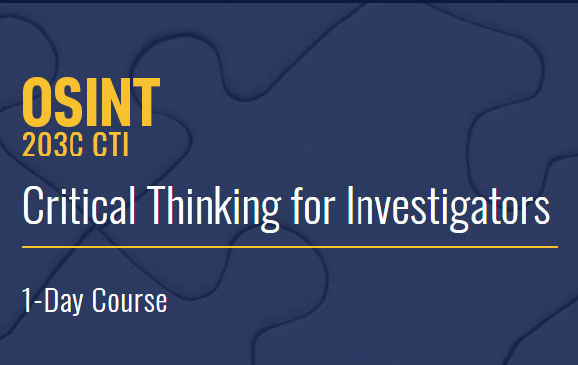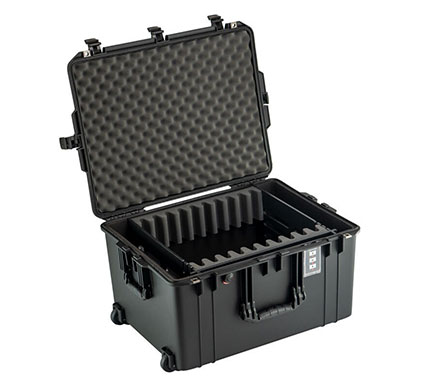
In an age of overwhelming misinformation, disinformation and propaganda, critical thinking skills are more essential than ever to determine fact-from-fiction and make the best possible decisions.
While we are called upon to use our critical and logical thinking skills on a daily basis, most of us are simply not good at it; we are all subject to a range of biases and “thinking mistakes” that we may not be aware of.
What we think of as “common sense” is just not enough.
Developed with over two decades of training delivery and development experience in both the investigative and operational intelligence spheres, this comprehensive one-day course will provide the essential skills required to accurately assess our expanding information landscape, get closer to the truth, and produce high-quality, accurate, intelligence products.
With broadcast-quality, remote delivery and utilizing an engaging, experiential learning approach, attendees will learn how to deconstruct problems, ask the right questions, challenge assumptions, examine different viewpoints with greater clarity, and make better decisions more efficiently.
This sought-after course will also introduce select case studies that highlight both successes and failures in real-world investigations, research projects, and intelligence operations to reinforce core training concepts.
Learn About
- How to apply key logical and critical thinking concepts, including linear, creative, and lateral thought processes
- How to produce valid and sound inductive and deductive arguments to support conclusions, recommendations, and decisions
- How to develop more effective research and analysis strategies
- The use of Link Analysis and Non-Obvious Relationship Analysis (NORA) to draw valid inferences
- How to effectively utilize a variety of freely available tools for better organizing investigative research and intelligence projects
- How to properly archive, compile, and analyze internet-sourced data to produce better quality intelligence products
- Best practices for the preservation and presentation of online-sourced evidence



